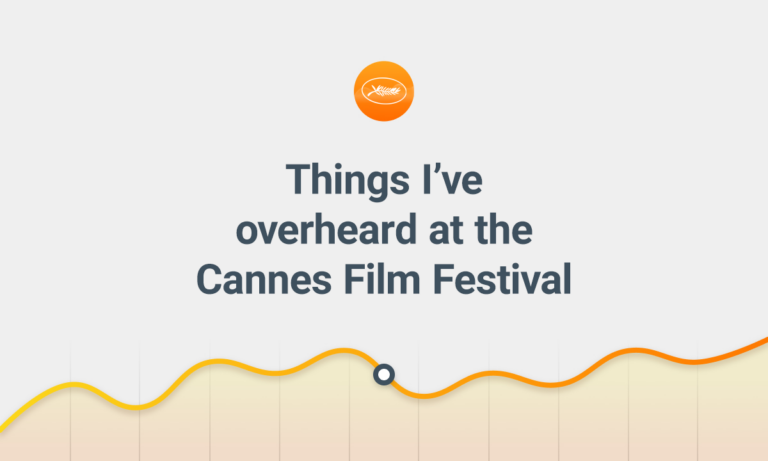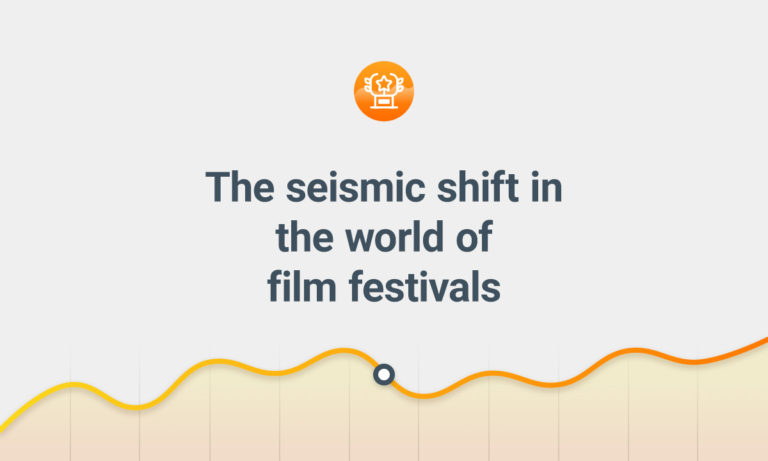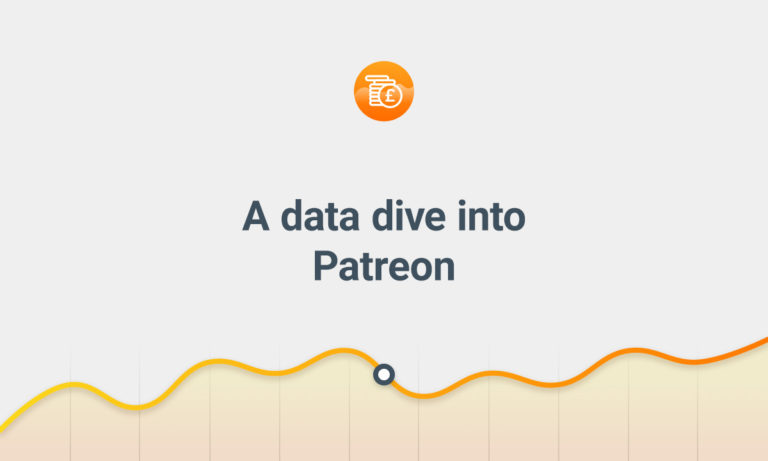 I read the YouTube small print (i.e. Terms of Service) and this is what I discovered:
I read the YouTube small print (i.e. Terms of Service) and this is what I discovered:
- The contract exists even after deleting your account
- There are at least two typos
- YouTube asks you to print hard copies
- If you accidentally stay logged in you must write to them
- They can use your words, ideas and opinions
- You must re-read the Terms on a regular basis
- YouTube can sell your videos without paying you
- They can change the deal without warning
- You must be 18 years old to legally watch YouTube
- YouTube’s Terms of Service may be unenforceable
The full details are below but, just to be safe, here are a few caveats…  1. I clearly ain’t no lawyer. If you’re an expert, a law professional, or a Reddit pedant please contact me with any errors. 2. I live here. This is based on the Terms as shown in the UK, other jurisdictions could differ. 3. If you represent YouTube, please be aware that by reading this you are agreeing to my Terms of Service.
1. I clearly ain’t no lawyer. If you’re an expert, a law professional, or a Reddit pedant please contact me with any errors. 2. I live here. This is based on the Terms as shown in the UK, other jurisdictions could differ. 3. If you represent YouTube, please be aware that by reading this you are agreeing to my Terms of Service.
My Terms of Service: Any employee of YouTube or affiliated companies and/or third party representatives and/or advisors (hereafter referred to as “The Suits”) are bound by these Terms. If something in this article is incorrect or wrong, please contact me (hereafter referred to as “The Guy In The Bee Outfit”) and he shall use his best endeavours to amend. If The Suits request a change that is not legally supported (including but not limited to conjecture, opinion and/or just stuff that makes you look bad) then The Suits agree to send The Guy In The Bee Outfit a Kinder Egg for each change requested. If a Kinder Egg cannot be found, then The Suits may select a replacement gift of no lesser value (that’s chocolate AND a toy).
1. It still applies even after deleting your account

 To end the legal agreement you entered into by simply visiting YouTube.com you must delete your account and physically write to YouTube in California. Until you do you are still agreeing to everything in the Terms. They can keep copies of your videos, even if you have deleted them and your account.
To end the legal agreement you entered into by simply visiting YouTube.com you must delete your account and physically write to YouTube in California. Until you do you are still agreeing to everything in the Terms. They can keep copies of your videos, even if you have deleted them and your account.
YouTube Terms of Service Reference: 11
2. There are at least two typos

 In section 5.1.L, the word ‘or’ in this sentence is meant to be ‘for’: “you agree not to access Content or any reason other than your personal, non-commercial use” and in section 3 they’re missing the word ‘to’ in the sentence which reads “YouTube reverses the right to make changes the Terms from time to time”.
In section 5.1.L, the word ‘or’ in this sentence is meant to be ‘for’: “you agree not to access Content or any reason other than your personal, non-commercial use” and in section 3 they’re missing the word ‘to’ in the sentence which reads “YouTube reverses the right to make changes the Terms from time to time”.
YouTube Terms of Service Reference: 5.1.L
3. YouTube asks you to print hard copies
![]()
 That includes the 4-page Terms of Service, 2-page Community Guidelines and 7-page Privacy Policy. YouTube has over 1 billion unique users a month, so if everyone printed it then that’s 812,500 trees and £325m in printer ink. Of course, this is just a silly exaggeration; some people might print doubled-sided and also I’m sure that we can get some sort of group discount on the ink.
That includes the 4-page Terms of Service, 2-page Community Guidelines and 7-page Privacy Policy. YouTube has over 1 billion unique users a month, so if everyone printed it then that’s 812,500 trees and £325m in printer ink. Of course, this is just a silly exaggeration; some people might print doubled-sided and also I’m sure that we can get some sort of group discount on the ink.
YouTube Terms of Service Reference: 2.4
4. If you accidentally stay logged in you must write to them
![]()
 YouTube is really worried about the classic ‘Frape’ happening to us on their site. So worried, in fact, that every single time you accidentally remain logged in on YouTube and someone else uses the site you need to “notify YouTube”.
YouTube is really worried about the classic ‘Frape’ happening to us on their site. So worried, in fact, that every single time you accidentally remain logged in on YouTube and someone else uses the site you need to “notify YouTube”.
YouTube Terms of Service Reference: 4.2
5. They can use your words, ideas and opinions

 The Terms apply to every interaction you have on the YouTube service, not just the videos you upload. This includes liking/disliking a video, commenting, messaging, even the images you use in designing your Youtube channel.
The Terms apply to every interaction you have on the YouTube service, not just the videos you upload. This includes liking/disliking a video, commenting, messaging, even the images you use in designing your Youtube channel.
YouTube Terms of Service Reference: 1.4
6. You must re-read the Terms on a regular basis

 Short of bedtime reading? Well, YouTube have some great news for you… “you must look at the Terms regularly to check for […] changes”.
Short of bedtime reading? Well, YouTube have some great news for you… “you must look at the Terms regularly to check for […] changes”.
YouTube Terms of Service Reference: 3
7. They can sell your videos without paying you

 The licence you give YouTube is strong and extremely valuable. It means that they can do anything they want with your content, including selling them for television broadcast, DVD sales, remake your work, make sequels, sell t-shirts without video’s images, etc. This licence covers not just your videos but also your comments, messages and channel designs.
The licence you give YouTube is strong and extremely valuable. It means that they can do anything they want with your content, including selling them for television broadcast, DVD sales, remake your work, make sequels, sell t-shirts without video’s images, etc. This licence covers not just your videos but also your comments, messages and channel designs.
YouTube Terms of Service Reference: 8.1.A
8. They can change the deal without warning

 YouTube can alter these Terms whenever they like and it’s up to you to check their website to see if any changes have been made. If you don’t like any of the changes, then “you must stop using the Service” and not stopping your use of YouTube means that you agree to the changes.
YouTube can alter these Terms whenever they like and it’s up to you to check their website to see if any changes have been made. If you don’t like any of the changes, then “you must stop using the Service” and not stopping your use of YouTube means that you agree to the changes.
YouTube Terms of Service Reference: 3, 5.4
9. You must be at least 18 years old to legally watch YouTube

 The Terms say “You may not use the Service and may not accept the Terms if […] you are not of legal age to form a binding contract with YouTube”. In most countries the Age of Majority is 18, meaning that anyone who is 17 or younger cannot enter into a binding agreement with YouTube, therefore meaning (in YouTube’s own words) they “may not use the Service”. This conflicts with YouTube’s other rules, such as the minimum age for registering an account of 13 years old. The only age restriction that seems to match the Terms is the minimum age of 18 to purchase access to paid channels. But not every country uses 18 as the age of majority; 15 year olds in Iraq can use YouTube legally, as can Indonesian 15 year old girls and 16 year olds in Cuba, Kyrgyzstan, Turkmenistan and Uzbekistan.
The Terms say “You may not use the Service and may not accept the Terms if […] you are not of legal age to form a binding contract with YouTube”. In most countries the Age of Majority is 18, meaning that anyone who is 17 or younger cannot enter into a binding agreement with YouTube, therefore meaning (in YouTube’s own words) they “may not use the Service”. This conflicts with YouTube’s other rules, such as the minimum age for registering an account of 13 years old. The only age restriction that seems to match the Terms is the minimum age of 18 to purchase access to paid channels. But not every country uses 18 as the age of majority; 15 year olds in Iraq can use YouTube legally, as can Indonesian 15 year old girls and 16 year olds in Cuba, Kyrgyzstan, Turkmenistan and Uzbekistan.
YouTube Terms of Service Reference: 2.1, 2.3
10. Are the YouTube Terms actually enforceable?
![]()
 The short answer is no, unless you do anything other than simply watch videos (such as register, sign in, comment, like, or upload a video). The long answer relates to Schnabel v. Trilegiant Corp, which went to the Second Circuit Court of Appeals in 2011. The court said that for Terms to be enforceable they had to be (a) easily found and (b) the user had to agree to them. However, user agreement doesn’t have to be in words; it can be in actions, like continuing to use the service. This is why most Terms start with something like “By using this website you agreed…” The court said…
The short answer is no, unless you do anything other than simply watch videos (such as register, sign in, comment, like, or upload a video). The long answer relates to Schnabel v. Trilegiant Corp, which went to the Second Circuit Court of Appeals in 2011. The court said that for Terms to be enforceable they had to be (a) easily found and (b) the user had to agree to them. However, user agreement doesn’t have to be in words; it can be in actions, like continuing to use the service. This is why most Terms start with something like “By using this website you agreed…” The court said…
Acceptance need not be express, but where it is not, there must be evidence that the offeree knew or should have known of the terms and understood that acceptance of the benefit would be construed by the offeror as an agreement to be bound
You can’t physically install iTunes without hitting ‘Agree’ so you would have a hard time saying you didn’t see the Terms. However, anyone can just type youtube.com into a browser and use the website. The YouTube Terms are at the very bottom of the homepage and so you could argue that they’re not conspicuous enough. A Forbes article claims:
The Schnabel case makes clear that website Terms of Use that are available solely via a link in a small font at the bottom of a homepage, without any notice to users or reasonable manifestation of assent, are unlikely to be enforceable.
So if you’re an idle YouTube viewer who doesn’t register for a YouTube/Google account, then you’re most likely not bound by the Terms. However, idle viewers are not Youtube’s main focus. You are of most value to YouTube when you:
- Register & sign in, because then they have your details and can sell targeted advertising to companies.
- Interact with other users, because you’re adding to the YouTube community which makes people come back to the site more often and stay longer.
- Add new, unique video content, because this is backbone of the website. In the early days of YouTube, most of the content was illegal versions of copyrighted material (movies, tv shows, music, etc). As the company started to charge for advertising it needed to develop a way of ensuring that they only charged advertisers for promotion around legal martial. This become their Partner program. If a YouTube content creator signs up to be a Partner then they get more features on their account (including making a cut of advertising revenue from your videos). In return, you make extra promises about only uploading content to which you hold the copyright.
When you do any of these three things you explicitly agree to the Terms of Service, Community Guidelines and Privacy Policy.
YouTube Terms of Service Reference: 1.3, 2.1, 2.2
YouTube small print = too much legal? Brain need celebrity?
It’s ok, calm down. The legal stuff is over now. Make yourself a cup of tea and enjoy Richard Dreyfus reading the iTunes End User Licence Agreement.
What’s the point?
I realise that some of these points are quite pedantic and I doubt that YouTube is genuinely trying to do evil things in these Terms. I didn’t write this to mindlessly bash YouTube or to act like I’ve uncovered some great crime, I wrote this because I think it’s important that we are all aware of the rules we’re agreeing to. Creating a successful online video is hard, and harder still is building a community of fans around your work. So if you’re going to go down that path you should take it seriously and investigate the small details that could affect you later down the line.





Comments
Fascinating, and good to see some analysis of these terms. But isn’t Item 1 cancelled by:
8.2 The above licenses granted by you in Content terminate when you remove or delete your Content from the Website
Yes, well spotted, Nic. I’ve amended the item.
Thanks for pointing that out.
Stephen
🙂 That said, I’ve just seen on the excellentTerms of Service; Didn’t Read – albeit for California:
““Youtube may retain, but not display, distribute or perform, services copies of your content that you have removed or deleted. ”
Good site, thanks for link.